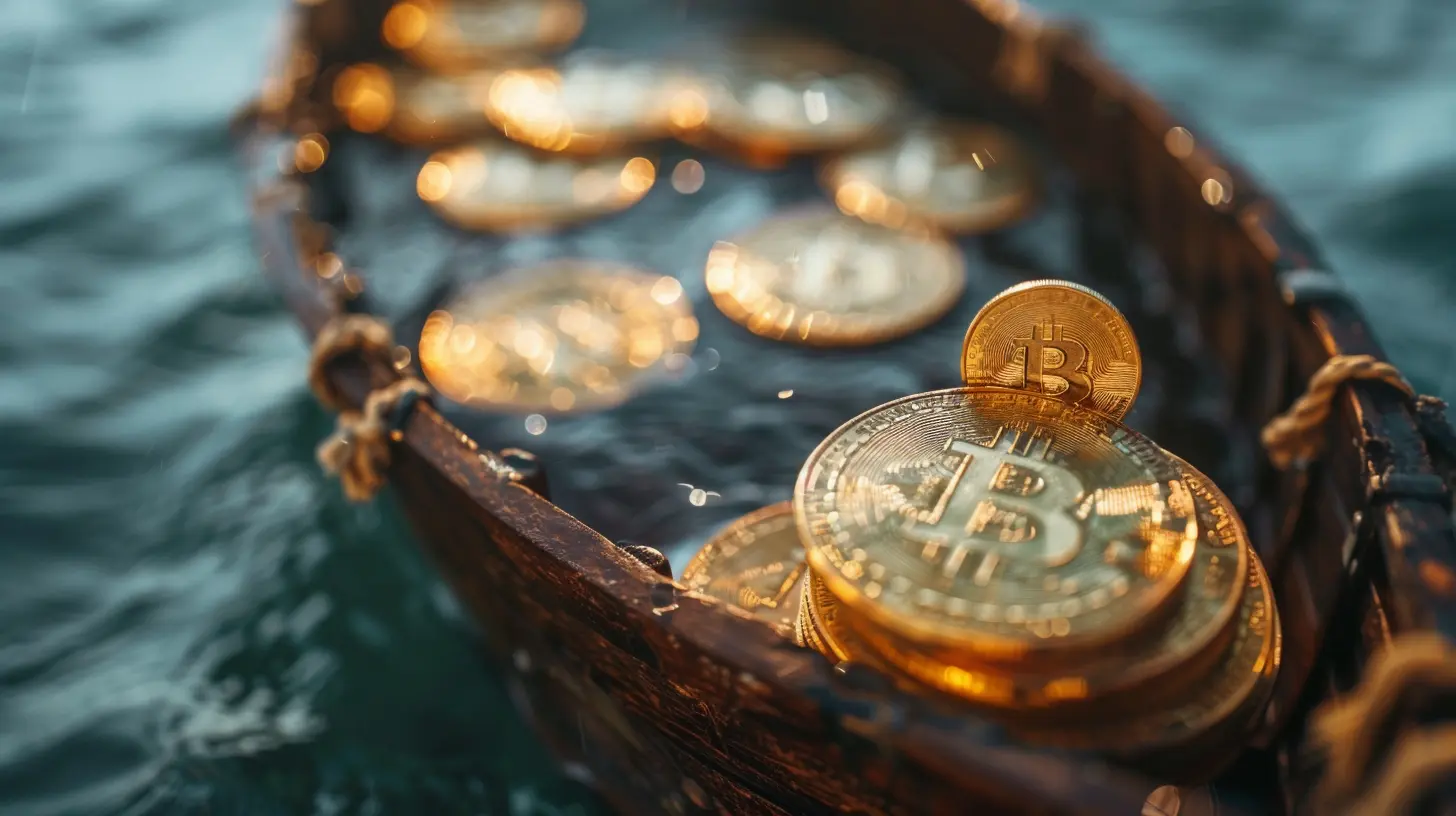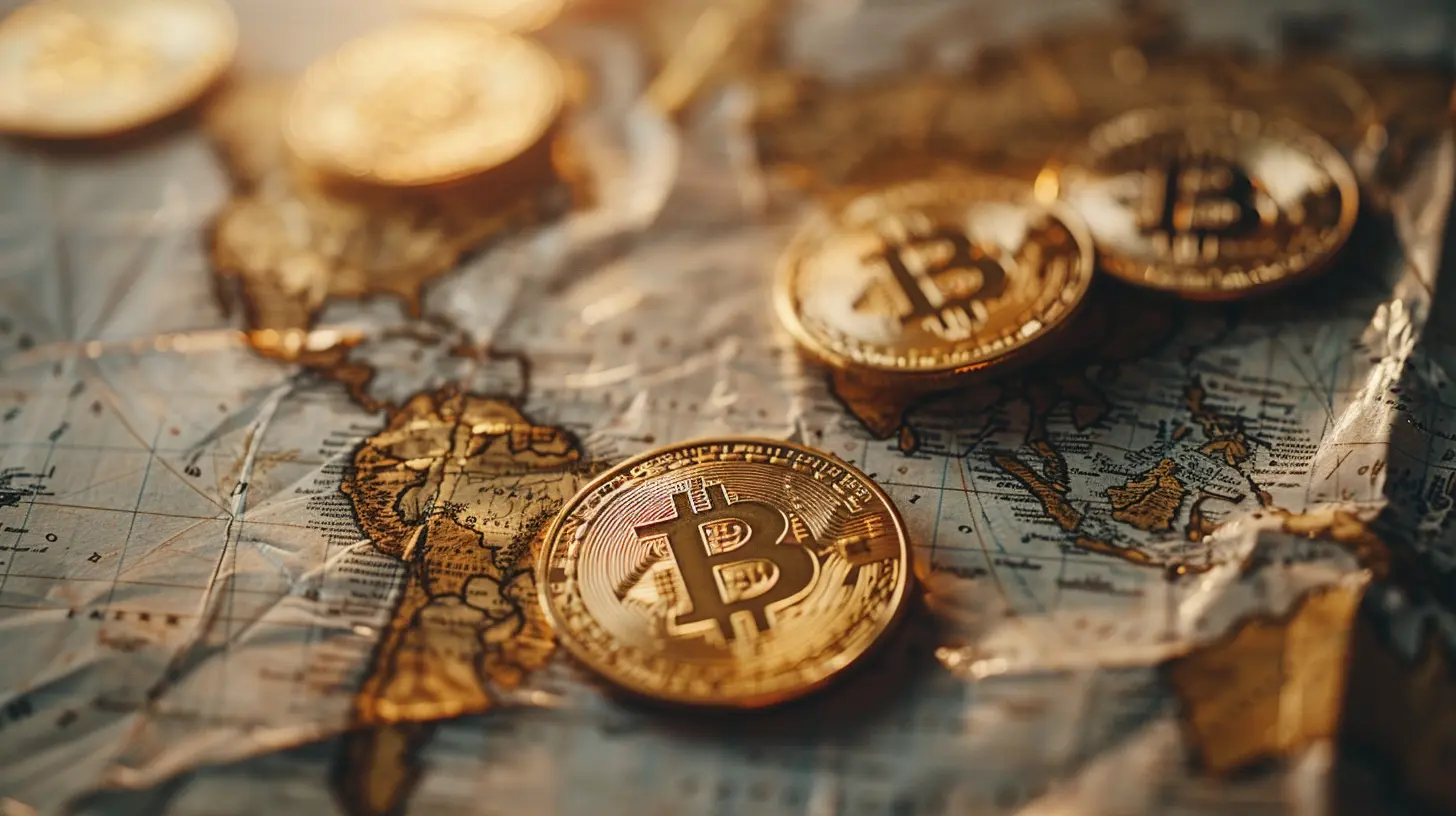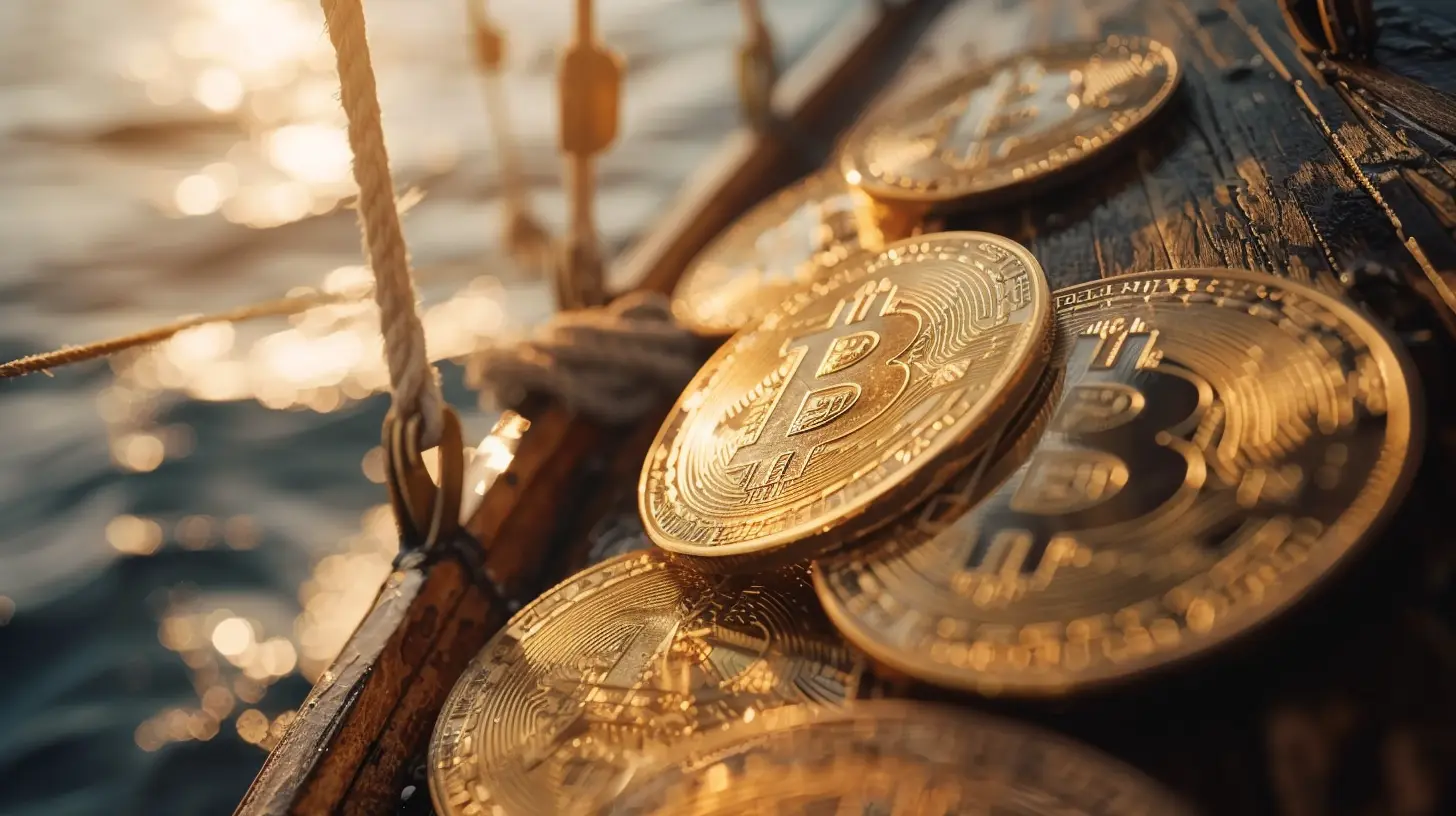Offshore Accounts and Cryptocurrency: Navigating the Digital Frontier
16 July 2025
Welcome to the Wild West of finance, where the lines between traditional banking and digital innovation blur like a Monet painting in a rainstorm. We're diving into the intriguing world of offshore accounts and cryptocurrency, two financial tools that have sparked curiosity and controversy in equal measure.
You’ve probably heard the buzz—Swiss bank accounts, crypto wallets, privacy, taxes, decentralization... It’s a lot to unpack, right? Don’t worry. We’re going to break it down so even your grandma could nod along (no offense to the crypto-savvy grannies out there).
So grab your digital compass—we’re navigating the digital frontier!
☠️ Offshore Accounts and Crypto: Why the Mystery?
Let’s start with the basics. Offshore accounts have been around forever. Think “James Bond opening a numbered Swiss account” kind of deal. Now add cryptocurrency to that mix, and boom—you’ve got a financial cocktail that could either taste like freedom or fire depending on how you handle it.But why is there so much mystery and allure?
Because both tools promise two magic words: privacy and control.
💼 What’s an Offshore Account, Anyway?
An offshore account is simply a bank account that's outside your home country. If you’re from the U.S., and you open an account in the Cayman Islands, that’s an offshore account. Sounds scandalous? Not necessarily.In reality, offshore accounts aren't illegal. Repeat after me: Not. Illegal. But—(and it’s a big but)—they can be misused for shady stuff like tax evasion or laundering. That’s where the bad rep comes from.
Here’s what they’re actually good for:
- Asset protection
- Diversifying your currency exposure
- Business operations in other countries
- Potential tax benefits (more on that in a bit)
🧬 And What About Cryptocurrency?
Cryptocurrency (think Bitcoin, Ethereum, etc.) is digital money run on blockchain technology. It's decentralized, which means it operates without banks or governments. Transactions are transparent, but identities can stay hidden. It’s like paying in cash online… sort of.Why people love crypto:
- Privacy and anonymity
- Borderless transactions
- Low-to-no fees
- No middlemen
- Potential for high returns (but also huge risks)
But again—just like with offshore accounts—crypto can be used for good... or for dodgy business.
🧭 Similar Goals, Different Roads
So what do offshore accounts and cryptocurrencies have in common? A lot more than you’d think.| Feature | Offshore Accounts | Cryptocurrency |
|------------------------|-----------------------------|----------------------------|
| Privacy | ✅ Yes | ✅ Yes |
| Government Regulation | ✅ Subject to some laws | 🟡 Varies widely |
| Accessibility | ⛔️ Requires paperwork | ✅ Open to anyone |
| Control over funds | ✅ More than domestic banks | ✅ Full control |
| Transparency | 🟡 Limited | ✅ Built-in via blockchain |
Both tools give you leverage outside of your local banking system. But one’s operated by banks in different jurisdictions (offshore), and the other by a decentralized network of computers (crypto). One is old-school secrecy; the other is new-age transparency with a twist.
🏴☠️ The Pirate’s Dream? Or Just Modern Asset Protection?
Let’s be real for a second: are people using offshore accounts and cryptocurrency to do shady stuff?Yes. Some are. (We’ve all seen the Panama Papers.)
But here’s the kicker—not everyone diving into this financial rabbit hole is looking to launder money in a ski mask between sips of espresso on their yacht. In fact, a lot of people are just trying to safeguard their wealth, invest smarter, or protect themselves from unstable economies.
Think of it this way: locking your door at night doesn’t mean you’re hiding bodies in the closet. You’re just being smart. Same goes for protecting your assets offshore or in crypto.
🌐 The Global Regulation Maze
Here’s where it gets juicy. The laws around offshore accounts and crypto? Oh boy—they vary more than burrito sizes across Tex-Mex restaurants.🏦 Offshore Accounts: Transparency Crackdown
Thanks to initiatives like CRS (Common Reporting Standard) and FATCA (Foreign Account Tax Compliance Act), offshore banking isn’t as “secret” as it once was. Countries now share financial intel, so you can’t just stash cash in the Bahamas unnoticed anymore. Sorry, Bond.📉 Cryptocurrency: Regulation in Progress
On the crypto side, it’s a mixed bag.- US and UK: Increasingly regulated. Expect taxes and reporting requirements.
- Switzerland and Singapore: Crypto-friendly but with clear frameworks.
- China: Banned most crypto activities.
- El Salvador: Made Bitcoin legal tender (say what?!)
The bottom line? You need to know your jurisdiction’s rules. One country’s legal investment is another’s jail sentence.
💸 Taxes: The Not-So-Fun Side of Fun Money
One myth we need to bust: offshore accounts and crypto do not equal tax-free income by default.Let’s put it in plain language. The IRS and other tax authorities? They’ve upgraded from magnifying glasses to full-blown digital microscopes. They’re watching.
- Offshore accounts need to be reported (FBAR in the US).
- Crypto earnings? Taxable. Whether you're mining, selling, trading, or staking—Uncle Sam wants his cut.
You don’t have to fear taxes. You just have to be smart about them. Work with a tax pro who knows the terrain. Don’t try to outrun the taxman with a digital horse.
🧠 Strategy, Not Secrecy: How Smart People Use Both
If you thought this was all cloak-and-dagger stuff, let’s flip the narrative. The savviest investors and entrepreneurs aren’t operating in the shadows. They’re leveraging offshore accounts and crypto legally and strategically.👨💼 Use Case: Diversifying Assets
Say you’re sitting on $200k in savings. Keeping that all in USD in one bank? Not the most nimble move. You could:- Hold foreign currencies in an offshore account (e.g. CHF or SGD).
- Invest in crypto to hedge against inflation or diversify risk.
🌱 Use Case: International Business
Running an online biz with clients in 10 countries? Why not have an offshore business bank account for better currency control, and accept crypto payments to cut fees and processing time?Boom—you’re international, baby.
😳 Risks? Oh, You Bet. But Not What You Think
Let’s knock down a common misconception: the biggest threat isn’t law enforcement or some global conspiracy—it’s bad decisions.Here’s what you should really look out for:
🚨 Scams, Scams, and More Scams
Offshore and crypto are magnets for scammers. If someone promises sky-high returns with “no taxes” and “no risk”? Run faster than your WiFi streaming a viral cat video.🔓 Security Threats
- Offshore? A weak jurisdiction could mean frozen funds or poor legal recourse.- Crypto? Lose your private key, and poof—your coins are gone forever. No “forgot password” button here.
📉 Market Volatility
Crypto markets are moodier than a teenager on espresso. Yes, there are gains—but also wild rides that shake even seasoned investors.🪙 Crypto + Offshore = Next-Gen Wealth Toolkit?
What happens when you combine the globalization of offshore accounts with the decentralization of crypto?You get flexibility. You get privacy. You get financial tools that can work across time zones, borders, and banking systems. It’s like upgrading your financial game from dial-up to WiFi6.
But remember: with great power comes great paperwork. You’ve got to:
- Stay compliant
- Report things properly
- Work with professionals
- Secure your assets wisely
🧳 So Should You Jump In?
Only if you’re doing it for the right reasons. Ask yourself:- Are you trying to hide money or just protect and grow it?
- Are you avoiding taxes or seeking better efficiencies and diversification?
- Are you informed—or just following TikTok tips from a guy in a rented Lamborghini?
If you’re clear on your goals and playing by the rules, offshore accounts and cryptocurrency can be a dynamic duo in your financial toolkit.
🚀 Final Thoughts: Navigating the New Frontier
Look, the financial world isn't what it used to be. The old-school brick-and-mortar way of banking is giving way to international and digital strategies that offer more control to the user. Offshore accounts and cryptocurrency are two signs of this evolution—if not a full-blown revolution.Used wisely, they’re tools for freedom, flexibility, and forward-thinking finances. Used recklessly, they’re a recipe for trouble (and possibly a courtroom drama).
So, educate yourself. Ask questions. Stay curious. Because navigating the digital frontier isn’t about hiding in the shadows—it’s about shining a light on what’s possible.
And who knows? Maybe one day, you’ll be sipping that espresso on the yacht. Legally, of course.
all images in this post were generated using AI tools
Category:
Offshore AccountsAuthor:

Audrey Bellamy
Discussion
rate this article
1 comments
Eva McPherson
Regulatory clarity is crucial.
July 28, 2025 at 10:39 AM

Audrey Bellamy
Absolutely, regulatory clarity is essential for fostering trust and innovation in the offshore and cryptocurrency landscape.


